

Opposition leader of the People’s National Party (PNP) Mark Golding said his administration is committed to reforming the fiscal management of Jamaica to increase its productivity.
Golding expressed that Jamaica is facing a general election shortly, which will be another opportunity for the people of the country, in particular those who are registered voters, to express their will as to how the country should move forward.
He also stated while speaking at the PNP People’s Forum Series 2025 in St Ann that the PNP candidates include a range of qualified individuals who have availed themselves to serve Jamaica.
“One of the candidates is a medical doctor, a consultant surgeon; the other is a person who has a doctorate from Harvard University. The senator is a professor at the University of the West Indies. These are distinguished Jamaicans, relatively young Jamaicans, who have put themselves forward to serve the people of Jamaica through the political process, and I must say that I am proud that under my leadership we have been attracting candidates of this kind of quality,” Golding said.
The opposition leader also indicated that these candidates will serve at a high standard when elected after the next general election. “Across Jamaica, we have many candidates who are outstanding and who will, when given the chance after the next general elections, be able to serve the people of Jamaica at a very high standard.”
Challenges in Jamaica’s finances
However, he noted that the country is facing numerous challenges but that there are many accomplishments to be proud of.
“Perhaps one of the biggest challenges is the sustainability of our public finances, which over the last decade and a half across administrations, has seen a considerable effort made from administration to administration to follow through on certain commitments that were written into the law under the Portia Simpson-Miller administration, the fiscal rules and the fiscal responsibility framework.
“And because of our steadfastness and the continuity of policy, we have seen where Jamaica’s public debt, which when we took government in 2012 was at an unsustainably high level of over 140 per cent of GDP, has now been brought down within that period of time to somewhere just below 70 per cent of GDP,” he continued.
This, Golding said is a significant national achievement, “Though because of the nature of it, it’s somewhat abstract, and not everybody can really grasp it or understand it or feel it, but it is that which enables us to do so much more in government than was possible when our debt was eating up the lion’s share of our budgetary resources each year,” he added.
However, he expressed that though this is a good platform on which Jamaica can move forward there are challenges that are holding the state back. “We have not seen, despite those improvements in the public debt, we have not seen our economy take off. In fact, our economy is relatively stagnant. The rate of growth which we have seen over the last 10 years has really been minuscule. We have never even achieved three per cent growth in a single year and in several years we’ve had rates of growth less than one per cent and last year we had negative growth contributed to by hurricane [Beryl] that hit us in July and the travel advisory that went out early in 2024 which had an impact on the tourism market and affected our arrivals and our room rates.”
Golding also revealed that despite Jamaica having a strong financial base, the state is still unable to grow in comparison to other Caribbean countries. “How is it that we have a stronger financial base? As a country, we have good reserves; we have managed to bring unemployment down according to statistics; inflation is relatively low, and so on, yet we can’t produce growth,” he said. “The lack of growth means that the wealth per capita of our people, the wealth if you share it among our whole population, and our wealth is around 7,000 USD per year, are how much we generate annually, and this is way less than pairs in the Caribbean region… like Trinidad, Guyana, Barbados, Antigua, and St Lucia. We are two, three, or four times less well-off than they are.”
He further expressed that this is unacceptable because Jamaica’s situation is not that different from the economies across the region that have somewhat similar circumstances. “We are underperforming, and we see it in many different aspects of life. We see it in the poor transportation system. We see it in the public health system being underfunded and under-resourced. We see it in the public education system not getting the necessary investments to transition from low performance to high performance.
“So we have to build a strong economy, and the People’s National Party is absolutely dedicated to proper fiscal management but also to looking at what we can do from a strategic perspective to increase the productivity of our nation, make our people better able to take on the jobs of the 21st century and grow wealth in the country. In order to achieve this, we feel that it’s absolutely necessary that ethics, values and attitudes, and a strong moral foundation be at the centre of how we govern,” Golding added.

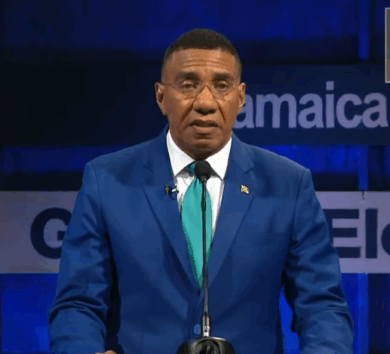
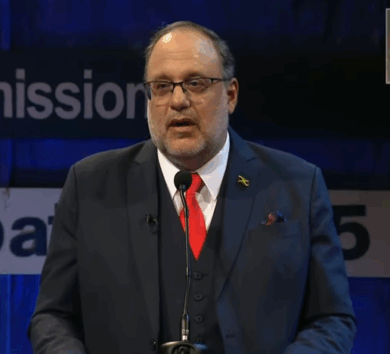
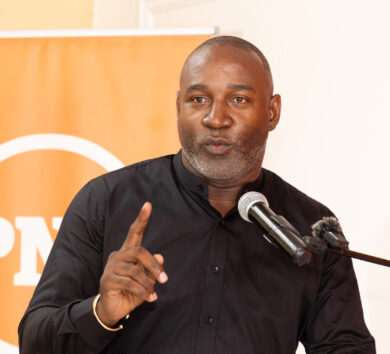
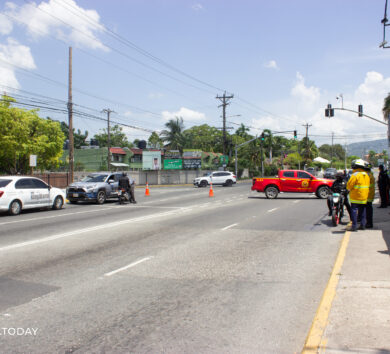
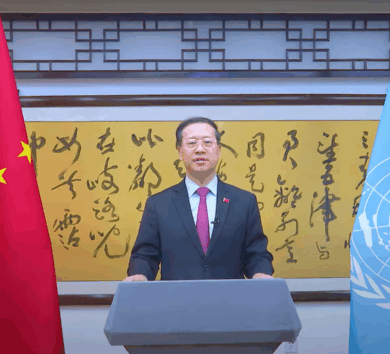
Comments